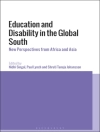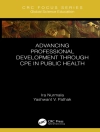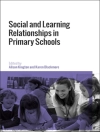Continental philosophy of education and North American educational thinking are two traditions of their own, yet it is fruitful to compare for similarities and differences between the two and thus generate interest in a mutual dialogue and exchange between European and North American of philosophy of education. The present book analyzes theoretical thinking on education from the standpoints of both traditions. The book deals with continental educational thinking while discussing the notion of Bildung and its diversity, from J.A.Comenius to Th. Adorno. In addition, the book discusses the idea of growth inherited from American progressive education and classical Pragmatism. The various contributors to the book offer insights to the theoretical discussion on education, and specify the historical and thematic connections between different thinking models. The book shows that connections between continental educational theories and classical Pragmatism are stronger than generally assumed. As such, the book invites the readers to challenge their own prejudices and views on Bildung and growth, and the relationship between them. “Education would be tyranny if it did not lead to freedom.” (J.F. Herbart) “The teacher who can get along by keeping spontaneous interest excited must be regarded as the teacher with the greatest skill.” (W. James)
表中的内容
Foreword; 1. Introduction; 2. Signs of Reality – The idea of General Bildung by J. A. Comenius; 3. Jean-Jacques Rousseau on Alienation, Bildung and Education; 4. The Search for the Term Bildung in the German Classic; 5. From Immanuel Kant to Johann Gottlieb Fichte – Concept of Education and German Idealism; 6. Educability and Bildung in Herbart’s Theory of Education; 7. Wilhelm von Humboldt’s Contribution to a Theory of Bildung; 8. Theodor W. Adorno – Education as Social Critique; 9. What is Bildung? Or: Why Pädagogik Cannot get away from the Concept of Bildung; 10. The German idea of Bildung and the Anti-Western Ideology; 11. Some Things Never Change: The Invention of Humboldt in Western Higher Education Systems; 12. Emersonian Self-Culture and Individual Growth: The American Appropriation of Bildung; 13. Horace Mann on Growth, the Pedagogical Method and Public School: Three Early Themes of Progressive Education in Democratic Society; 14. William James’s Educational Will to Believe; 15. The Origins and Educational Significance of John Dewey’s Philosophy; 16. George Herbert Mead: Formation Through Communication; 17. Experiencing Growth as a Natural Phenomenon: John Dewey’s Philosophy and the Bildung Tradition; 18. Dewey’s Progressive Education, Experience and Instrumental Pragmatism with Particular Reference to the Concept of Bildung; 19. Between Bildung and Growth – Connections and Controversies; Author descriptions.












